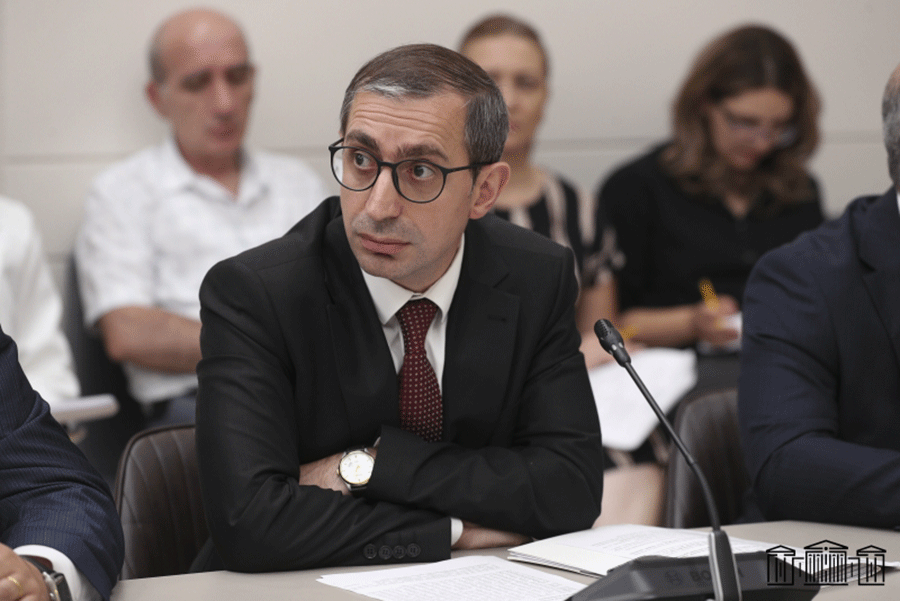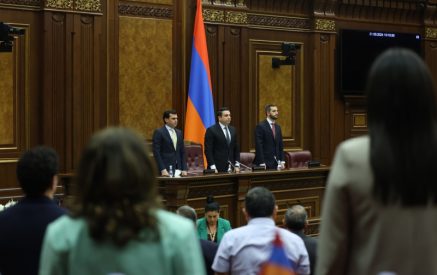The prohibition of the death penalty without restrictions is enshrined in the Constitution of the Republic of Armenia. Armenia is committed to abolishing the death penalty through both universal and regional international toolsets. In 2003, Armenia ratified the 6th Protocol of the Convention for the Protection of Human Rights and Fundamental Freedoms, according to which the abolition of the death penalty is already restricted, but it does not exclude the death penalty for acts committed during war or under conditions of immediate threat of war.
In this context, Protocol 13 is seen as the final step towards the abolition of the death penalty in all cases.
The ratification of the protocol by Armenia will be assessted at the international level as the most important positive progress, strengthening Armenia’s ranking as an international member state that respects its obligations. The RA Deputy Minister of Justice Karen Karapetyan said this presenting the draft law on the Protection of Human Rights and Fundamental Freedoms, on Ratifying Protocol No. 13 on the Abolition of the Death Penalty in All Cases attached to the Convention.
The issue was debated at the sitting of the RA NA Standing Committee on State and Legal Affairs on September 4. The protocol was signed on May 3, 2002.
Read also
The ratification of the protocol is in line with the position of Armenia as a state in favor of the complete abolition of the death penalty, but it remains one of the most important international commitments not yet fulfilled by Armenia.
As of now, 46 states have signed the protocol, which has entered into force for 44 states. Armenia had not ratified the protocol yet. The second country that has not ratified it yet is Azerbaijan. The issue of ratification of the protocol is regularly put on the agendas of both the Committee of Ministers of the Council of Europe and the PACE.
The Secretary of Armenia Faction Artsvik Minasyan inquired why this issue has not been debated so far. Karen Karapetyan informed that the process was started once in 2007, the draft was submitted to the Constitutional Court and was assessed as conforming to the Constitution. However, the process has stopped for some reasons.
The co-rapporteur, the Chair of the Standing Committee on State and Legal Affairs Vladimir Vardanyan noted that, in general, during the history of the independent RA, there were no technical possibilities for executing the death penalty, and the death penalty was never carried out in the RA. Touching upon the so-called extrajudicial executions, he mentioned. “Unfortunately, we have faced such cases both during the 44-day war and in the framework of the aggression against the sovereign territory of Armenia, when people were, in fact, shot without proper judicial procedures. This has been considered, is being considered and will be considered as an international crime. This procedure, as such, is prohibited, and our neighbours must clearly understand that such actions are considered as war crimes,” Vladimir Vardanyan urged his colleagues to vote for the draft.
“It is important to find a mechanism within the framework of the debate of this issue to once again speak out about the crimes against humanity committed by Azerbaijan,” the member of the Committee Artsvik Minasyan said.
In the second reading, the Committee debated the draft law on Making Amendments and Addendum to the Constitutional Law Judicial Code of the Republic of Armenia. According to the key rapporteur, the RA Deputy Minister of Health Armen Nazaryan, with the adoption of the draft, it is designed to ensure the implementation of medical examination for serving judges as well. It was noted that the involvement of the Ministry of Health in the process of organizing the medical examination will be excluded.
The debated drafts were endorsed.
National Assembly of the Republic of Armenia

























































